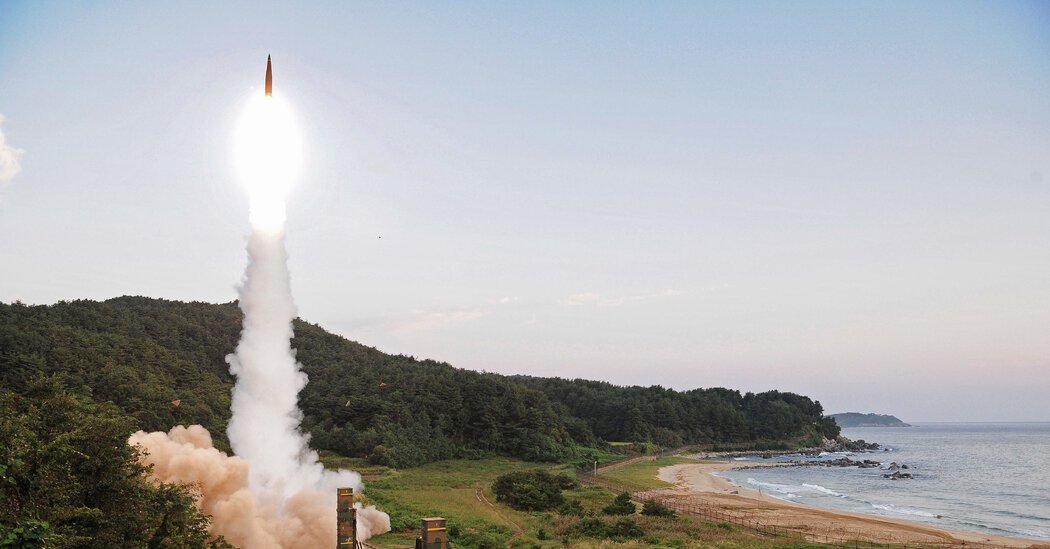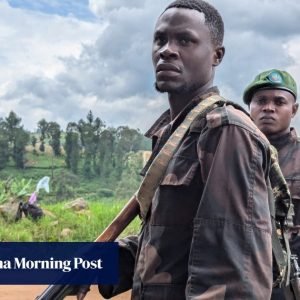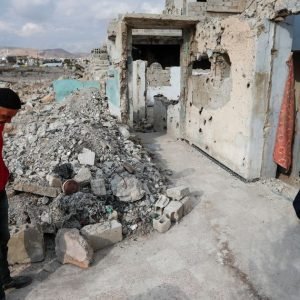
Ever since the Korean War was halted in an uneasy truce in 1953, South Koreans have lived under an American promise to defend their country, if necessary, with nuclear weapons. President Biden emphatically reiterated that commitment last year, vowing that any nuclear attack by North Korea would lead to the destruction of its government.
But decades of American assurances have failed to deter North Korea from building a nuclear arsenal and then expanding it. Led by Kim Jong-un, North Korea has also become more provocative, testing missiles powerful enough to reach the United States. And it has rattled South Korea by reviving a Cold War-era defense agreement with Russia, another nuclear-armed state.
The South has long considered it a taboo to pursue atomic weapons in defiance of Washington’s nonproliferation policy. But jitters about security here have been intensified by the possible re-election of former President Donald J. Trump, whose commitment to the alliance between Washington and Seoul appears to be shaky at best.
Now, a growing majority of South Koreans say their country needs its own nuclear weapons instead of relying on the United States for protection. The idea, although still disavowed by the South Korean government, is increasingly becoming part of mainstream political debate.
Polls show that many South Koreans say they can no longer trust the American nuclear umbrella to guard them from North Korea. They doubt that Washington would come to their aid in the event of a conflict with North Korea now that Pyongyang is racing to develop the ability to attack American cities with nuclear warheads.
“We cannot expect — and should not ask — the American president to use his nuclear weapons to defend an ally at the risk of sacrificing his own people,” said Cheong Seong-chang, who leads a group of 50 analysts pushing for a domestic nuclear arsenal in South Korea. “We must defend ourselves with our own.”
South Korea abandoned its nuclear weapons program in the 1970s, as Washington pushed nonproliferation, and chose to rely on the United States to defend it against the North. Tens of thousands of American troops have been garrisoned for decades in the South, which for many years also hosted U.S. nuclear weapons. Washington withdrew those arms in 1991, hoping the disarmament would incentivize Pyongyang to stop pursuing its own nuclear weapons.
For a while, Washington had two important partners in that effort: China and Russia. But in recent years, it has found itself increasingly at odds with both of those countries on issues such as trade tariffs and the war in Ukraine. Now, neither cooperates in American-led efforts to roll back North Korea’s nuclear ambitions.
Mr. Kim’s regime has tested both atomic weapons and intercontinental ballistic missiles. It is developing technology to deliver multiple nuclear warheads with a single missile. It is also escalating its threat to target South Korea with a fleet of nuclear-capable, short-range ballistic missiles, which Mr. Kim said this month he would deploy near the border with South Korea.
In June, the Stockholm International Peace Research Institute estimated that North Korea had built roughly 50 nuclear warheads and had enough fissile material to build another 40 or so. It was also focusing on tactical nuclear weapons, which have a smaller payload.
“There is a growing concern that North Korea might intend to use these weapons very early in a conflict,” wrote Matt Korda, a researcher at the institute.
It was fears such as these that President Yoon Suk Yeol of South Korea tried to address when he met Mr. Biden at the White House last year. The two leaders deepened their alliance and signed the Washington Declaration to show that the American defense commitment was ironclad. Last month, they reaffirmed that any nuclear attack by North Korea would be met with “a swift, overwhelming and decisive response.”
“For the first time, it has been written down in a document that American nuclear assets will be tasked with deterring and countering North Korea’s nuclear force,” said Kim Tae-hyo, Mr. Yoon’s deputy national security adviser.
But that has done little to tamp down misgivings in South Korea about the American nuclear umbrella, which also covers Japan.
A poll in February showed that the percentage of respondents who said Washington would defend their country with nuclear weapons even though North Korea could attack the mainland United States with nuclear missiles had dropped to 39 percent from 51 percent last year. Another survey, which has been conducted annually for a decade, found a historical shift. Asked to choose between having nuclear weapons or U.S. troops on their soil, more South Koreans, for the first time, picked the former.
Other surveys have found as many as 70 percent of all South Koreans supporting an independent nuclear arsenal. It has become increasingly common for conservative politicians and private and government analysts to support or discuss the idea, especially after Russia’s invasion of Ukraine highlighted the extent to which a nuclear-armed power could get away with invading a nonnuclear neighbor.
“The call for nuclear weapons will be anything but short-lived because ‘going nuclear’ sounds sexy as a slogan,” said Lee Byong-chul, who has studied nuclear nonproliferation at the Institute for Far Eastern Studies in Seoul. “But there is a huge gulf between high public support and a lack of technical capabilities and political intention to build nuclear weapons.”
South Korea has neither facilities to produce fuel for nuclear bombs nor the technical know-how to design nuclear weapons. And while Mr. Yoon has been more antagonistic toward the North than his recent predecessors and briefly warmed to the idea of going nuclear, there is little political will in the South to pursue atomic weapons.
Strengthening reconnaissance and missile abilities, analysts say, would serve South Korea better and give it the ability to launch pre-emptive strikes against the North.
Building nuclear weapons would be “redundant” and “would not make South Korea any safer,” said Chun Yung-woo, a former national security adviser, “as long as the South Korea-U.S. alliance is alive and well.”
But the future of that alliance is likely to be volatile if Mr. Trump — who tried to negotiate with Mr. Kim face to face — is re-elected in November.
“It’s nice to get along when somebody has a lot of nuclear weapons,” Mr. Trump said of Mr. Kim when he accepted his party’s presidential nomination last month. “I think he misses me, if you want to know the truth.”
For supporters of a domestic nuclear force in South Korea, Mr. Trump’s potential return to power could be a good thing. He once said he would be open to allowing Japan and South Korea to build their own nuclear arsenals rather than depend on the American nuclear umbrella.
“It could open a window of opportunity,” said Mr. Cheong, the pro-nuclear analyst.






